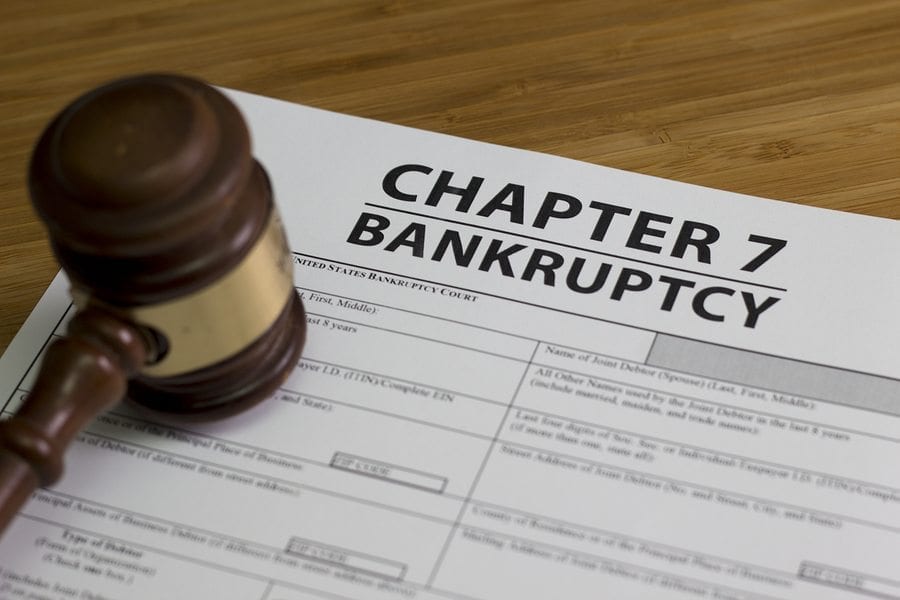Pennsylvania’s Chapter 7 Bankruptcy Exemptions Protect Your Home and Property While You Eliminate Debt
Top Bankruptcy Attorneys and Home Foreclosure Defense Attorneys.
Over 750 ★★★★★ Google Reviews

Contact Our Attorneys Today



EVALUATION
At Sadek Bankruptcy Law Offices, we realize that every situation is different. Our debt relief lawyers will take the time to learn about your situation and your goals. Our objective is to explain your legal options and offer the best debt relief strategy for you in the most compassionate and friendly manner possible. Call 24/7 to schedule your meeting with a lawyer.
AVAILABLE
Our office understands the financial stress our clients endure. Therefore, in addition to reasonable legal fees, we offer a payment plan to all of our valued clients to make quality legal services most affordable.
AND NJ
In addition to our primary law office in Center City, Philadelphia, we also have law offices throughout the Greater Philadelphia, Pennsylvania Area and in New Jersey. Our branch offices have contributed to making us the #1 Bankruptcy Filer and debt relief firm in the Greater Philadelphia area. Our goal is to have a convenient location within 20 minutes of where our clients work or reside.
Pennsylvania’s Chapter 7 Bankruptcy Exemptions Protect Your Home and Property While You Eliminate Debt
Many people are aware that Chapter 7 of the U.S. Bankruptcy Code is an extremely powerful debt elimination tool. While Chapter 7 bankruptcy is not automatically the best choice to handle a high debt load in Pennsylvania, it is an option that all concerned individuals should at least consider.
Frequently, Chapter 7 bankruptcy is the quickest path to a fresh financial start. However, many people have reservations, in general, regarding bankruptcy because they are intimidated by the process or afraid that they will lose valuable or sentimental property and assets.
The bankruptcy lawyers of Sadek Bankruptcy Law Offices are dedicated to providing bankruptcy solutions to help Philadelphians and Pennsylvanians handle excessive debt. We can discuss an array of bankruptcy concerns included how PA’s bankruptcy exemptions can allow you to keep most or all of your property while getting rid of debt.
What Is a Chapter 7 Bankruptcy Exemption?
A Chapter 7 bankruptcy is sometimes referred to as a liquidation. In theory, the bankruptcy trustee is supposed to sell any nonexempt property you have in order to satisfy creditors. In reality, many bankruptcy filers have few assets where it is not worth the time and expense for the trustee to sell them.
However, there are certain scenarios where the individual may own their home or have other valuable assets that could be used to satisfy all or part of priority debts held by creditors.
This is where bankruptcy exemptions come apply and can protect your property. Property that is fully covered by a bankruptcy exemption is the property you keep. Therefore, many Chapter 7 bankruptcy filers are able to keep a substantial amount or all of their property and assets. However, one should never rely on bankruptcy exemptions without first consulting with an experienced and meticulous bankruptcy lawyer.
What Property and Assets Can a Pennsylvania Chapter 7 Bankruptcy Filer Protect?
In Pennsylvania, Chapter 7 bankruptcy filers may elect to utilize either the state-based or federal bankruptcy exemptions.
While Pennsylvania bankruptcy filers have the option to select the set of exemptions that best suit their situation, they may not mix and match items from both sets of exemptions.
Some of the commonly used bankruptcy exemptions existing under Pennsylvania law include:
- 75% of the filer’s wages are protected.
- Personal property including clothing and certain books is protected.
- Public pensions and private retirement benefits receive certain protections.
- Insurance or annuity payments are exempted up to $100 a month
- A wild card exemption.
While Pennsylvania does not have a homestead exemption, a house can be protected through other aspects of state law or through the federal exemptions. As for state law based method of protecting a home, properties held in a joint tenancy in the entirety can function in essentially the same fashion as an exemption.
Since a tenancy in the entirety is owned by both married spouses, a creditor cannot seize take the jointly owned property to settle the debts of one spouse.
If the bankruptcy filer elects to utilize the federal exemptions, there is a homestead exemption available. This exemption is applied automatically and protects up to $23,675 of equity in your principal place of residence.
Additional federal exemptions commonly utilized by bankruptcy filers includes an exemption of up to $3,775 a car or truck, $12,625 aggregate value to protect household goods, exemptions to protect retirement and pension benefits, and a wildcard exemption.
Work with a Strategic Philadelphia Chapter 7 Bankruptcy Lawyer
As one can probably surmise from the above, filing a Chapter 7 bankruptcy that is likely to produce a favorable result often requires highly strategic thinking and astute attention to detail. Our bankruptcy attorneys analyze the facts and circumstances of every bankruptcy matter before providing an opinion or any legal options.
Drawing from the facts and circumstances we discover from our conversation with the potential client and his or her financial records, we can provide advice and guidance regarding Chapter 7 bankruptcy exemptions. We can answer questions like, “Should I use the federal exemptions or the Pennsylvania exemptions?” We can also answer questions regarding bankruptcy alternatives and what you should do if Chapter 7 bankruptcy isn’t right for you.
To schedule a free and confidential consultation, with Pennsylvania bankruptcy lawyers, call 215-545-0008 today. We can schedule an appointment to discuss your potential Chapter 7 bankruptcy at our law offices conveniently located in Center City Philadelphia, northeast Philadelphia, Bucks County, and Delaware County.

